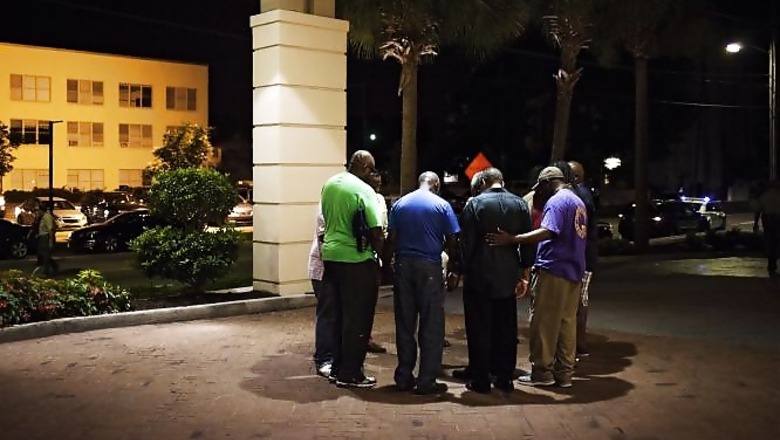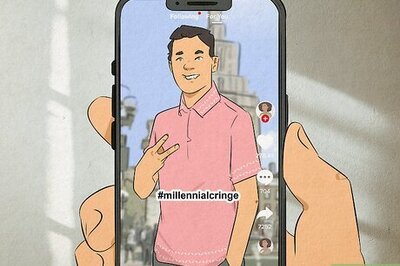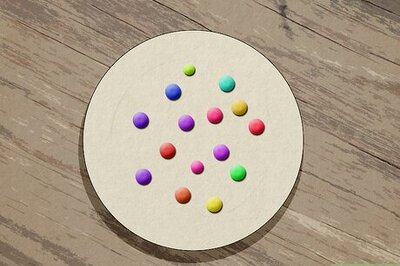
views
It happens across the world with a chilling frequency. It happened in a historic church in Charleston in the United States on Wednesday evening. A young man entered the Church and shot dead nine people (all African Americans including the Pastor and State Senator) who were engrossed in prayer. It clearly was a `hate` crime planned in a `church` that led the fight against racial discrimination and resulted in the death of innocent people.
The perpetrator of the heinous act is believed to have made strong statements against African Americans before spraying the bullets. US President Obama succinctly summarized the `mood on the streets` when he said that `we as a country will have to reckon with the fact that this type of mass violence …doesn't happen in other places with this kind of frequency`. President Obama’s expression of `heartache, sadness and anger` was echoed in the streets in the sentiments expressed by common people.
Unleashing of acts of violence against fellow citizens is something which is reported ever so frequently from different parts of the world. Intolerance, yawning `social divides`, fierce competition, the alarming rise of the `we vs they` attitude and our inability to celebrate diversity have all contributed to hate crimes in different societies. What circumstances have triggered off this `carnage of hate`? How does one prepare the ground to replace it with a `carnival of hope`?
The Charleston massacre has once again drawn attention to what seems to be an `apparent` global complacency to the long term impact of such horrific events and our collective inability to recognize the urgency and imperative of the need for a movement of `societal sensitization` to understand, accept and even celebrate social diversity. Events of hate crime draw immediate public attention and expression of sentiments of distress, despondency and a desire to work for rebuilding social relationships. With the passage of time, this sentiment loses its intensity until another hate crime forces all to revisit the same issue.
Preliminary investigations now reveal that the perpetrator of the latest `hate` crime, has a history of publicly stating his views against the `African American community`. His Facebook post had his photograph portraying symbols of what is often termed as `white supremacists`. Those who had been in touch with him reveal that he often spoke of the need for racial segregation and threatened to hurt people. The signs were all too visible. After the event, people now say `If only we had taken those comments seriously`.
This is the clear pattern in all hate crimes across the world. The perpetrator screams out for attention. In retrospect, it is often all too visible in his/her actions, attitudes and assertions. One tends to assume, that this reaction will pass and nothing catastrophic would happen. However, the `carnage of hate`, claims its innocent victims. Each hate crime, reminds society of the need for pro-active steps which unfortunately are rarely taken. It resurfaces on another day in another place with a new set of victims.
The Charleston incident like all hate crimes points out to one critical fact - the inability of societies to relate to the multi-track diversity that they are all confronted with. Diversity in its myriad manifestations is today the order of the day. Recognizing the `presence` of diversity, requires a sustained effort at sensitizing different segments of society to the `fact` of difference.
We often hear of the need to `accommodate` diversity. There is a serious challenge with the terminology. One accommodates that which one cannot openly reject or oppose. When the opportunity to challenge the diversity, makes itself available, one finds it convenient then not to accommodate the diversity anymore. It is in this context that this essay earlier referred to the `we vs they` attitude. This `we vs they` approach is the fertile breeding ground for all forms of `hate`. `We vs They` symbolizes ones discomfort with diversity. `We vs They` represents a social divisiveness that over time provides limited space for a common ground.
The reality of modern societies, require us not merely to `accommodate` diversity but to `celebrate` diversity. Accommodation is a by-product of a lack of choices; Celebration on the other hand is a positive recognition, of the `fact` of difference and an abiding faith in the capacity of multi-track perspectives enriching the quality of modern life in diverse societies. A `carnival of hope` rests on a `sustained` long term strategy to sensitize especially new generations, during their formative years to the celebration of difference. If one is to make a lasting contribution to the well-being of future generations, this is a necessary and imperative first step.
(Dr Shastri is the Pro Vice Chancellor of Jain University, Bengaluru, an election and political analyst with CNN-IBN and currently in the United States on an academic assignment)















Comments
0 comment